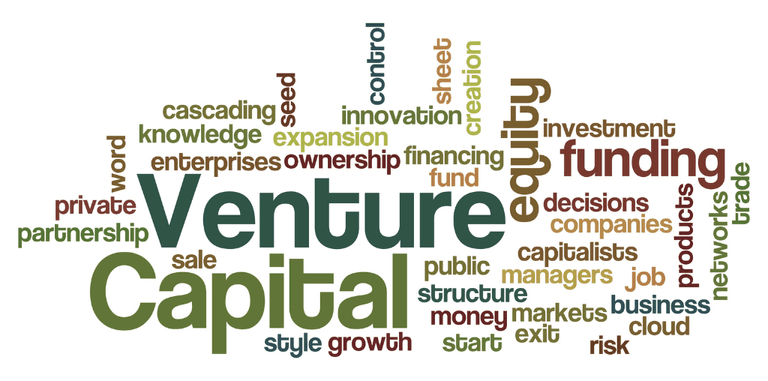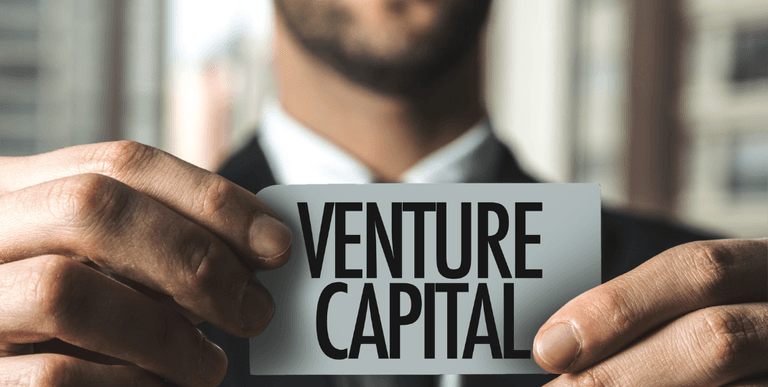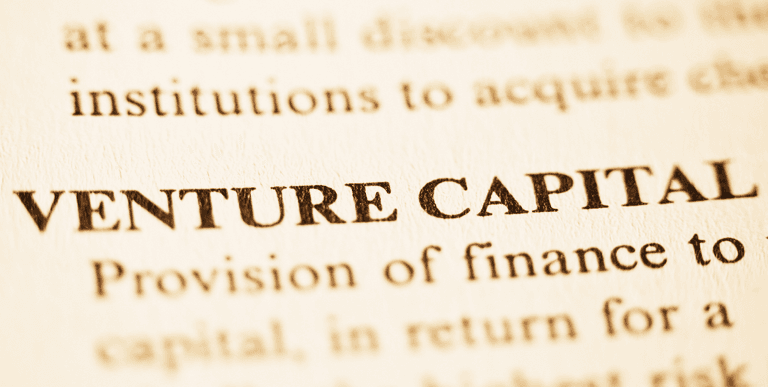Seed funding and venture capital are both types of funding used to finance the growth and development of a business, but they have some key differences:

1. Purpose
Seed funding is used to finance the initial stages of a startup or business, such as product development and market research, while venture capital is typically used to finance later stages of a business, such as expansion and acquisitions.

2. Investment amount
Seed funding is typically a smaller amount of money than venture capital, with the average seed round ranging from a few thousand dollars to several million dollars. Venture capital investments can be much larger, with the average round ranging from several million dollars to hundreds of millions of dollars.

3. Investment stage
Seed funding is typically provided at an earlier stage of a business, such as the pre-seed or seed stage, while venture capital is provided at a later stage, such as the Series A, B or C stage.

4. Type of investor
Seed funding is typically provided by angel investors, crowdfunding campaigns and incubators, while venture capital is typically provided by venture capital firms.

5. Equity
Seed funding is typically provided in exchange for equity in the company, while venture capital is also provided in exchange for equity but with a more significant percentage of the company ownership.

6. Expectations
Seed funding is used as a way for the business to prove its concept and attract larger investors in the future, while venture capital investors expect significant returns on their investment through an IPO or acquisition.

7. Involvement
Seed funding investors usually have less involvement in the company's operations than venture capital investors, who typically take a more active role in the company's strategy and decision-making.
Seed funding is a type of funding that is used to finance the initial stages of a startup or business. It is typically provided by angel investors, venture capitalists, or crowdfunding campaigns and is used to cover expenses such as product development, market research, and hiring initial employees.
Seed funding is typically a smaller amount of money than later rounds of funding and is seen as a way for the business to prove its concept and attract larger investors in the future. It is an early stage of funding for companies and entrepreneurs.

What is the typical amount of seed funding?
The typical amount of seed funding can vary greatly depending on the industry and stage of the business. It can range from a few thousand dollars to several million dollars.

How is seed funding used?
Seed funding is typically used to cover expenses such as product development, market research, and hiring initial employees. It may also be used to develop a prototype or MVP (Minimum Viable Product) to attract more investors.

What types of investors provide seed funding?
Seed funding is typically provided by angel investors, venture capitalists, or crowdfunding campaigns.

Is equity typically required for seed funding?
Yes, most seed funding is provided in exchange for equity in the company. The amount of equity can vary depending on the investment amount.

What are the requirements for seed funding?
The requirements for seed funding can vary depending on the investor. However, most investors will want to see a clear business plan and a solid team in place before investing. Some may also require regular progress updates or the ability to have a board seat or observer status.

How long does it take to secure seed funding?
The time it takes to secure seed funding can vary greatly depending on the business and the investor. It can take anywhere from a few weeks to several months to secure funding.

How many rounds of seed funding are usually needed?
The number of rounds of seed funding needed can vary depending on the business. Some companies are able to secure all the funding they need in one round, while others may require multiple rounds of funding to reach their goals.
The top seed funding firms based in London
- Seedcamp - A London-based micro-seed fund and accelerator program that provides funding and support to early-stage technology startups.
- Entrepreneur First - A global venture capital firm that invests in individual entrepreneurs, helping them to build high-growth technology companies.
- LocalGlobe - A London-based venture capital firm that focuses on seed and early-stage investments in technology companies.
- Hoxton Ventures - A London-based venture capital firm that focuses on early-stage technology companies.
- BGF Ventures - A venture capital firm that specializes in investing in early-stage technology companies in the UK and Ireland.
- AngelLab - A London-based seed-stage venture fund that invests in technology startups in the UK and Europe.
- Oxford Capital - A venture capital firm that invests in early-stage technology companies in the UK and Europe.
- Forward Partners - A venture capital firm that provides funding and support to early-stage e-commerce and technology startups.
- Episode 1 - A seed-stage venture capital firm that invests in technology companies in the UK and Europe.
- Seedrs - An online equity crowdfunding platform that allows startups to raise seed funding from a large number of investors.
Please note that these firms are well-known and reputable, but this list is not exhaustive, and the ranking of the firms is not in any particular order. The best fit for your startup will depend on the stage of your company and the industry you are in.

The top venture capital firms based in London
- Index Ventures - A leading global venture capital firm with a portfolio of successful technology companies such as Dropbox, Adyen, and Robinhood.
- Accel Partners - A global venture capital firm that has invested in companies such as Facebook, Dropbox, and Spotify.
- LocalGlobe - A London-based venture capital firm that focuses on seed and early-stage investments in technology companies.
- Hoxton Ventures - A London-based venture capital firm that focuses on early-stage technology companies.
- White Star Capital - An early-stage venture capital firm that invests in technology companies in North America, Europe, and Asia.
- Octopus Ventures - A venture capital firm that invests in technology companies in the UK and Europe.
- BGF Ventures - A venture capital firm that specializes in investing in early-stage technology companies in the UK and Ireland.
- EQT Ventures - A venture capital firm that invests in technology companies in Europe and the US.
- Seedcamp - A London-based micro-seed fund and accelerator program that provides funding and support to early-stage technology startups.
- Entrepreneur First - A global venture capital firm that invests in individual entrepreneurs, helping them to build high-growth technology companies.
Please note that these firms are well-known and reputable, but this list is not exhaustive, and the ranking of the firms is not in any particular order. The best fit for your startup will depend on the stage of your company and the industry you are in.

How do venture capital firms find investors?
Venture capital (VC) firms typically find investors through a variety of channels, including:
Limited Partners (LPs)
These are the investors that provide the majority of the capital for a VC firm's fund. LPs can be institutional investors such as pension funds, endowments, and sovereign wealth funds, as well as high-net-worth individuals.
Networking
VC firms often rely on their personal networks to find new investors. They may attend industry conferences, meet with other VC firms, or connect with potential investors through professional associations or alumni groups.
Referrals
VC firms often get referrals from current or past investors, entrepreneurs, or other industry professionals.
Marketing
VC firms may use marketing campaigns to reach potential investors. This can include targeted online advertising, direct mail campaigns, or hosting events to showcase their portfolio companies.
Online platforms
Some VC firms use online platforms to connect with potential investors.
Track record
A VC firm with a strong track record of successful investments can attract new investors.
It's worth noting that the process of finding investors can be time-consuming and competitive. VC firms typically have a limited time frame in which to raise capital, and they may face competition from other VC firms also looking to raise capital.

Successful investors
London is also home to many successful and well-known investors, here are a few examples:
- Robin Klein - A British entrepreneur and venture capitalist, known for his investments in companies such as Zoopla, Lovefilm, and Graze.
- Michael Moritz - A Welsh-American venture capitalist and journalist, known for his investments in companies such as Google, Yahoo, and LinkedIn.
- Anne Boden - A British entrepreneur and venture capitalist, known for her investment in companies such as GoCardless and Monzo
- Brent Hoberman - A British entrepreneur and venture capitalist, known for his investments in companies such as Lastminute.com and Founders Factory.
- Eileen Burbidge - A British venture capitalist, known for her investments in companies such as Monzo and Starling Bank.
- Saul Klein - A British entrepreneur and venture capitalist, known for his investments in companies such as Lovefilm, Zoopla, and Mind Candy.
- Simon Calver - A British entrepreneur and venture capitalist, known for his investments in companies such as Lovefilm and Improbable.
- Robin Klein - A British entrepreneur and venture capitalist, known for his investments in companies such as Zoopla, Lovefilm, and Graze.
- Neil Murray - A British venture capitalist, known for his investments in companies such as Improbable, Starling Bank and Monzo.
- Eric Archambeau - A Belgian venture capitalist, known for his investments in companies such as Improbable, Farfetch, and Zoopla.
Please note that this list is not exhaustive and it is not in any particular order. It includes investors from various fields and not only from technology and startups.